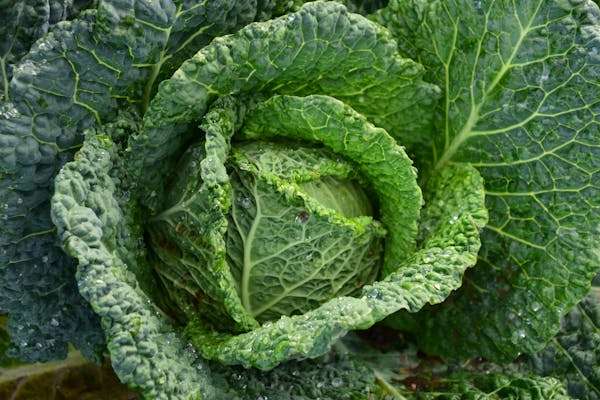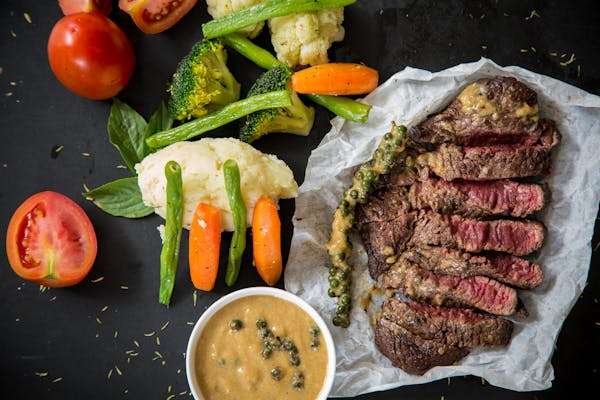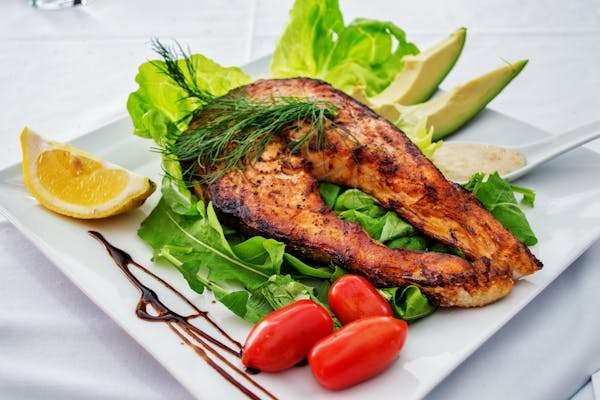For your unborn child’s health and development, it is imperative that you eat the correct foods during your pregnancy. A healthy diet can give you and your developing child the vital nutrients you both need.
You and your unborn child will receive the vitamins, minerals, and other nutrients you need with the help of this blog post, which will walk you through the healthiest meals for pregnancy.
Including these top 10 best foods for pregnancy-friendly in your diet can help ensure a healthy pregnancy and a good start for your unborn child, from leafy greens to lean proteins.
Let’s examine these nutrient-dense foods and their advantages to guarantee a joyful and healthy pregnancy.
Leafy Greens:
One of the greatest foods for pregnancy is leafy greens because they are a veritable powerhouse of vital nutrients.

These veggies are high in iron, calcium, folate, and vitamins A, C, and K. Examples of these vegetables are broccoli, kale, and spinach. In the developing fetus, folate is essential for preventing neural tube abnormalities, and iron helps maintain the increased blood volume required during pregnancy.
The growth of a baby’s bones and teeth is aided by calcium, while the immune system and general health are enhanced by vitamins A, C, and K.
How to Include Leafy Greens in Your Diet
Leafy greens are delicious and easy to include in your diet. For an added nutritional boost, add spinach to smoothies or use kale in soups and salads. Broccoli can be used to casseroles and stir-fries, or it can be roasted or steamed as a side dish.
By eating these veggies daily, you can make sure that both you and your unborn child get the nutrients you need to promote a balanced and successful pregnancy.
Berries:
Because of their outstanding nutritional value, berries are not only delicious but also among the greatest foods to eat during pregnant. These berries are rich in antioxidants, vitamins, and fiber. They include blackberries, raspberries, strawberries, and blues.
Antioxidants improve overall health and immunological function by shielding cells from damage brought on by free radicals, which is especially advantageous during pregnancy. Vitamin C is one of the vitamins that helps make collagen, which is necessary for the growth and repair of tissues in both the mother and the unborn child.
How Berries Benefit Pregnancy
Because of their high fiber content, berries can aid in promoting digestion and helping to control weight gain during pregnancy. They are a healthy snack option because they are low in calories and natural sugars.
Berries are a simple way to add color and nutrition to smoothies, yogurt, and cereal for breakfast. Their vivid hues signify an elevated level of phytochemicals that promote diverse facets of mother and fetal well-being. A wide range of nutrients that support a healthy pregnancy are ensured when a variety of berries are included.
Lean Proteins:
One of the healthiest meals for pregnancy is lean protein, which is essential to a healthy diet. These proteins—which include lean beef or pig chops, turkey, tofu, and chicken—offer the critical amino acids required for both fetal development and the healing of maternal tissue.

They are heart-healthy options for expecting mothers because they are also low in saturated fats. Protein is essential for the growth of the baby’s tissues, muscles, and organs.
Importance of Lean Proteins during Pregnancy
Pregnancy-related increases in protein requirements can be supported by eating enough lean protein in addition to being necessary for the creation of hormones and enzymes, proteins aid in the development of new cells.
You can avoid excessive weight gain and maintain stable blood sugar levels by including lean proteins in your meals. Lean meats, whether grilled, roasted, or mixed into salads and stir-fries, are a nutritious and well-balanced way to support a healthy pregnancy.
Whole Grains:
Whole grains are regarded as one of the healthiest foods for pregnancy and are essential to a healthy pregnancy diet. Whole grains include barley, quinoa, brown rice, oats, and whole wheat. These grains are high in fiber, vitamins, and minerals that are vital to the development of the fetus and the health of the mother.
Fiber facilitates digestion and helps avoid constipation, which is a typical pregnancy side effect. Additionally, whole grains offer a consistent flow of energy, which can lower the risk of gestational diabetes and help control blood sugar levels.
Incorporating Whole Grains into Your Pregnancy Diet
Switching refined grains to whole grains can be beneficial during pregnancy. Start your day with whole grain cereals or oatmeal for sustained energy. Use whole wheat pasta or brown rice in meals instead of white varieties.
Snack on whole grain crackers or incorporate quinoa into salads or stir-fries. These choices provide essential nutrients such as B vitamins, iron, and magnesium, which are vital for both maternal and fetal health. By choosing whole grains, expectant mothers can enhance their nutrition and support a healthy pregnancy.
Dairy Products:
Dairy products are among the finest foods for pregnancy and should be a vital part of a balanced diet. They are abundant in calcium, vitamin D, protein, and other vital elements required for the healthy growth of the fetus as well as the health of the mother.

The growth of a baby’s bones and teeth depends on calcium, and vitamin D aids in calcium absorption and strengthens the immune system. Dairy products include protein, which is essential for tissue growth and repair in both the mother and the child.
Importance of Dairy Products during Pregnancy
Incorporating dairy products such as milk, yogurt, and cheese ensures an adequate intake of calcium and vitamin D, which are crucial during pregnancy. These nutrients play a vital role in preventing conditions like preeclampsia and ensuring healthy bone development in the baby.
Opt for low-fat or fat-free options to reduce saturated fats while still benefiting from the nutrients dairy products offer. Including dairy in your diet also provides probiotics, which can support digestive health and immune function during pregnancy.
By including dairy products, expectant mothers can support their overall health and promote a healthy pregnancy.
Legumes:
Among the greatest foods for pregnancy, legumes are strongly advised as a component of a nutritious pregnancy diet. Legumes include things like peas, beans, lentils, and chickpeas. They are abundant in fiber, iron, folate, plant-based protein, and other necessary elements.
Legumes provide the baby with protein that promotes growth and development, while fiber helps with digestion and helps avoid constipation, which is a typical pregnant side effect.
Incorporating Legumes into Your Pregnancy Diet
Including a variety of legumes in your meals ensures a diverse nutrient intake crucial for maternal and fetal health. Add beans or lentils to soups, stews, or salads for a hearty and nutritious meal.
Chickpeas can be roasted for a crunchy snack or blended into hummus for a tasty dip. Peas can be added to pasta dishes or mixed into rice for added texture and flavor.
These versatile legumes provide essential nutrients such as folate, which is crucial for preventing birth defects and supporting cell division in the growing baby. By including legumes in your diet, you can ensure a well-rounded and nourishing pregnancy.
Avocados:
Avocados are celebrated as one of the best foods for pregnancy due to their exceptional nutrient profile and health benefits. They are rich in healthy fats, particularly monounsaturated fats, which are important for fetal brain development and maternal health.
Avocados also contain vitamins C, E, and K, along with folate and potassium, making them a powerhouse of nutrients essential during pregnancy.
How Avocados Benefit Pregnancy
Including avocados in your pregnancy diet can help meet increased calorie and nutrient needs. The healthy fats in avocados support the absorption of fat-soluble vitamins and contribute to healthy skin and tissue development.
Avocados are versatile and can be added to salads, sandwiches, or smoothies, or mashed as a spread on toast. Their creamy texture makes them a satisfying addition to meals and snacks, providing sustained energy and satiety.
The potassium content helps regulate blood pressure and fluid balance, which is beneficial for both the mother and baby. By incorporating avocados into your diet, you can enhance your nutritional intake and support a healthy pregnancy.
Nuts and Seeds:
Nuts and seeds are essential components of a healthy pregnancy diet and are considered among the best foods for pregnancy. They are rich in protein, healthy fats, vitamins, minerals, and antioxidants, providing numerous health benefits for both the mother and baby. Almonds, walnuts, chia seeds, flaxseeds, pumpkin seeds, and sunflower seeds are a few examples.
How Nuts and Seeds Benefit Pregnancy
Incorporating nuts and seeds into your diet during pregnancy provides essential nutrients such as omega-3 fatty acids, which are crucial for fetal brain development and eye health. These foods also offer a good source of plant-based protein, which supports tissue repair and growth.
Nuts and seeds are rich in vitamins like vitamin E, which acts as an antioxidant, protecting cells from damage. They are less likely to become constipated because of their high fiber content. Snack on a handful of nuts or seeds, sprinkle them on yogurt or salads or add them to baked goods for a nutrient boost.
By including nuts and seeds in your pregnancy diet, you can promote overall health and support a healthy pregnancy journey.
Fish:
Fish is highly recommended as one of the best foods for pregnancy due to its rich source of omega-3 fatty acids and other essential nutrients. Omega-3 fatty acids, particularly DHA (docosahexaenoic acid), are crucial for fetal brain and eye development.

Fish also provides high-quality protein, vitamins (such as vitamin D), and minerals (such as iodine), which are important for overall maternal and fetal health.
How Fish Benefits Pregnancy
Incorporating fish into your pregnancy diet can help promote healthy fetal growth and development. Omega-3 fatty acids contribute to the development of the baby’s nervous system and support cognitive function later in life.
Fish is also a good source of lean protein, which is essential for tissue repair and growth. However, it’s important to choose fish varieties that are low in mercury, such as salmon, trout, sardines, and anchovies.
Limit consumption of high-mercury fish like swordfish and shark to avoid potential harm to the developing baby. Cook fish thoroughly to reduce the risk of foodborne illnesses. By including fish in moderation and choosing safe options, you can optimize your nutritional intake and support a healthy pregnancy journey.
Eggs:
Eggs are recognized as one of the best foods for pregnancy due to their rich nutritional content and versatility. They are packed with high-quality protein, vitamins, minerals, and essential nutrients beneficial for both maternal health and fetal development.
Eggs are also a good source of choline, which is crucial for brain development and cognitive function in the growing baby.
How Eggs Benefit Pregnancy
Including eggs in your pregnancy diet provides essential nutrients like iron, which helps prevent anemia and supports the increased blood volume during pregnancy. Eggs also contain vitamins such as vitamin D, which is important for calcium absorption and bone health.
Choline, found abundantly in egg yolks, plays a vital role in fetal brain development and helps prevent neural tube defects. Eggs are easy to prepare and can be incorporated into various dishes, such as omelets, salads, or sandwiches.
Opt for pasteurized eggs to reduce the risk of foodborne illnesses. By including eggs in your balanced diet, you can ensure a steady supply of nutrients that support a healthy pregnancy and optimal fetal growth.
Conclusion:
In conclusion, incorporating the best foods for pregnancy into your daily diet can significantly impact both your health and the development of your baby. From nutrient-packed leafy greens and antioxidant-rich berries to essential proteins like fish and eggs, these choices provide vital nutrients crucial for a healthy pregnancy journey.
By making these foods a regular part of your meals, you can ensure you’re giving yourself and your baby the best possible start towards a happy and healthy future. Click to learn more.
FAQs:
What are the best foods to eat during pregnancy?
Leafy greens like spinach and kale, berries, lean proteins such as chicken and tofu, whole grains like quinoa and oats, and dairy products are excellent choices.
Why are leafy greens important during pregnancy?
Leafy greens are rich in folate, iron, and other essential vitamins that support fetal development and help prevent birth defects.
Can I eat fish during pregnancy?
Yes, fish is a great source of omega-3 fatty acids crucial for baby’s brain development. Opt for low-mercury options like salmon and sardines.
How can I incorporate nuts and seeds into my pregnancy diet?
You can snack on almonds or pumpkin seeds, add chia or flaxseeds to smoothies, or sprinkle nuts and seeds over salads and yogurt.
Are eggs safe to eat during pregnancy?
Yes, eggs are a nutritious choice as they provide high-quality protein, vitamins, and choline, which is important for a baby’s brain development.
